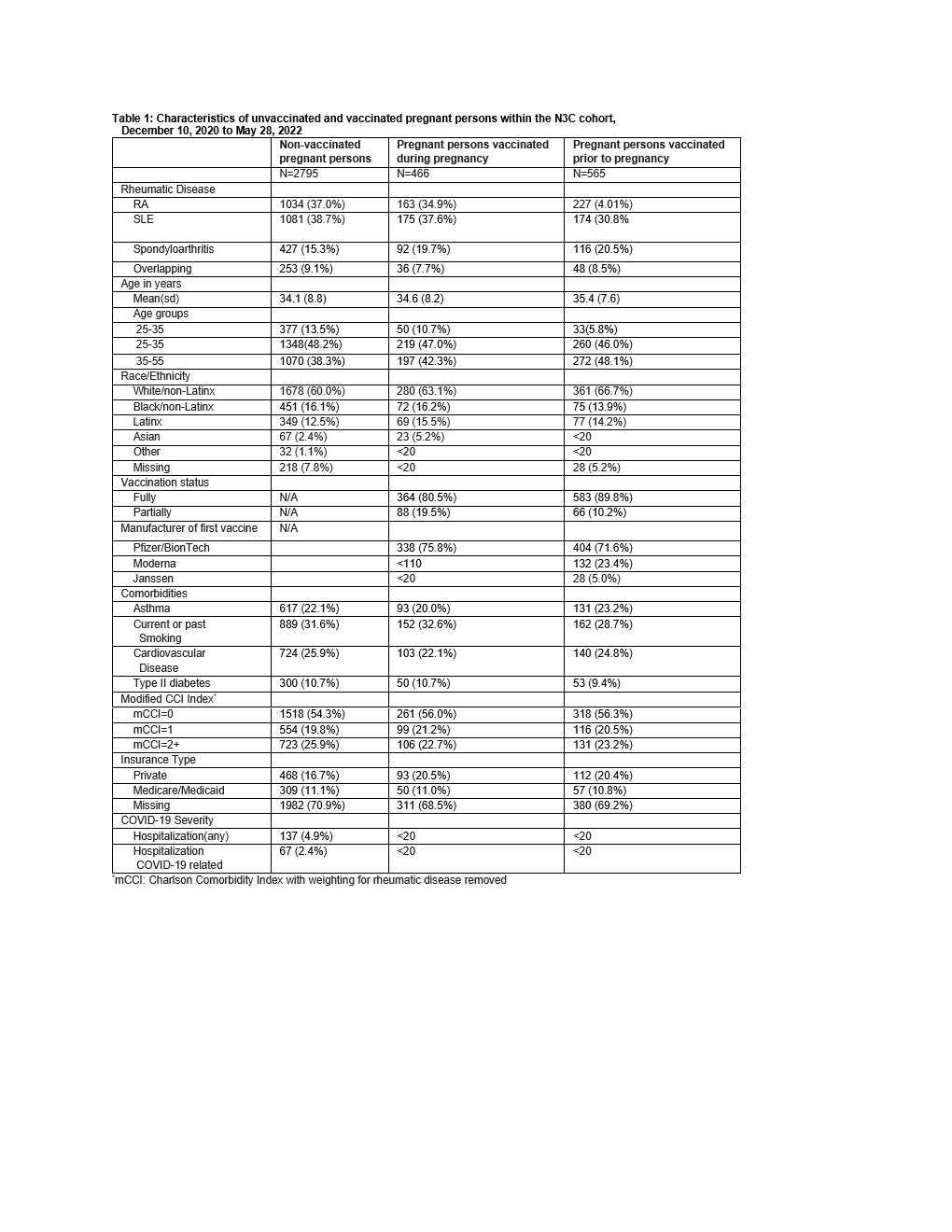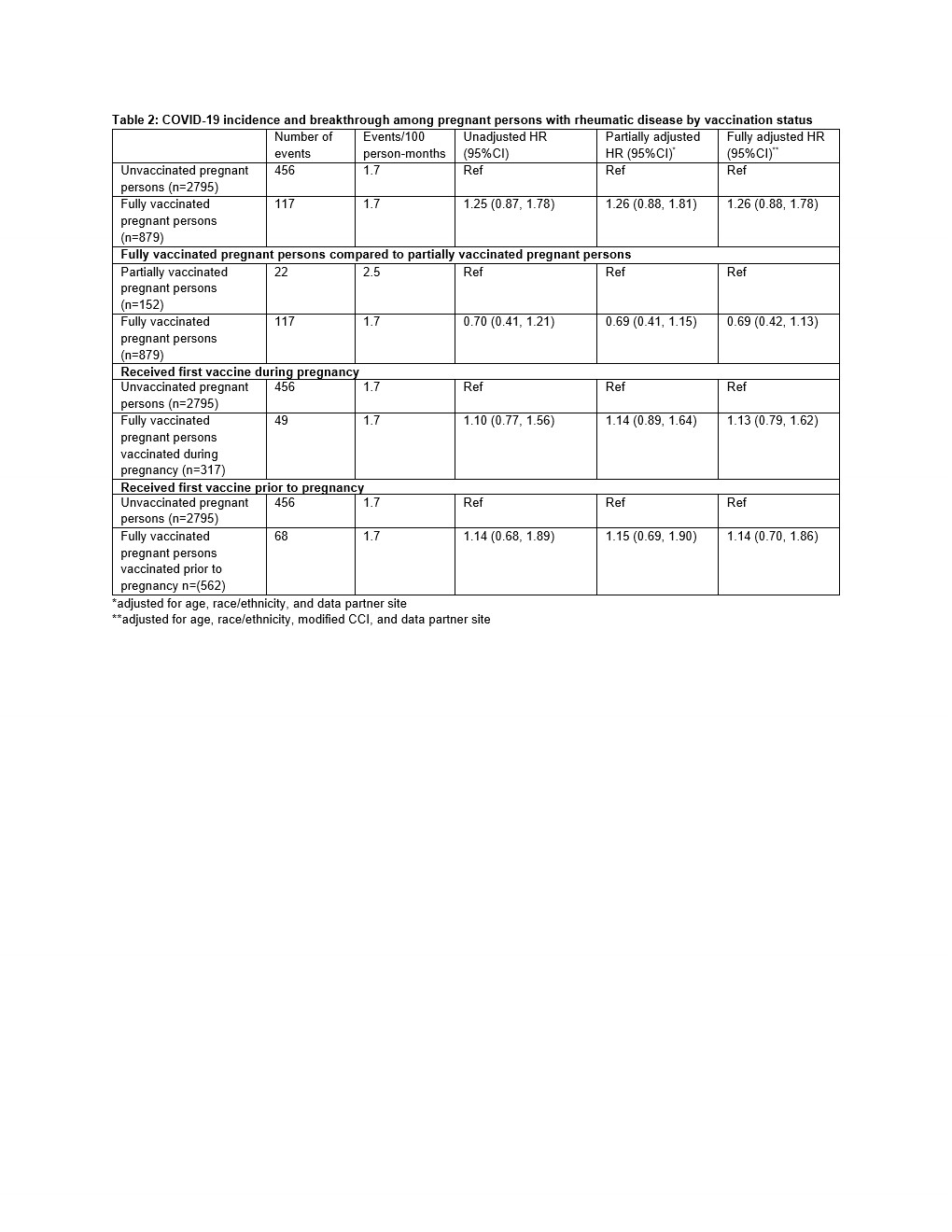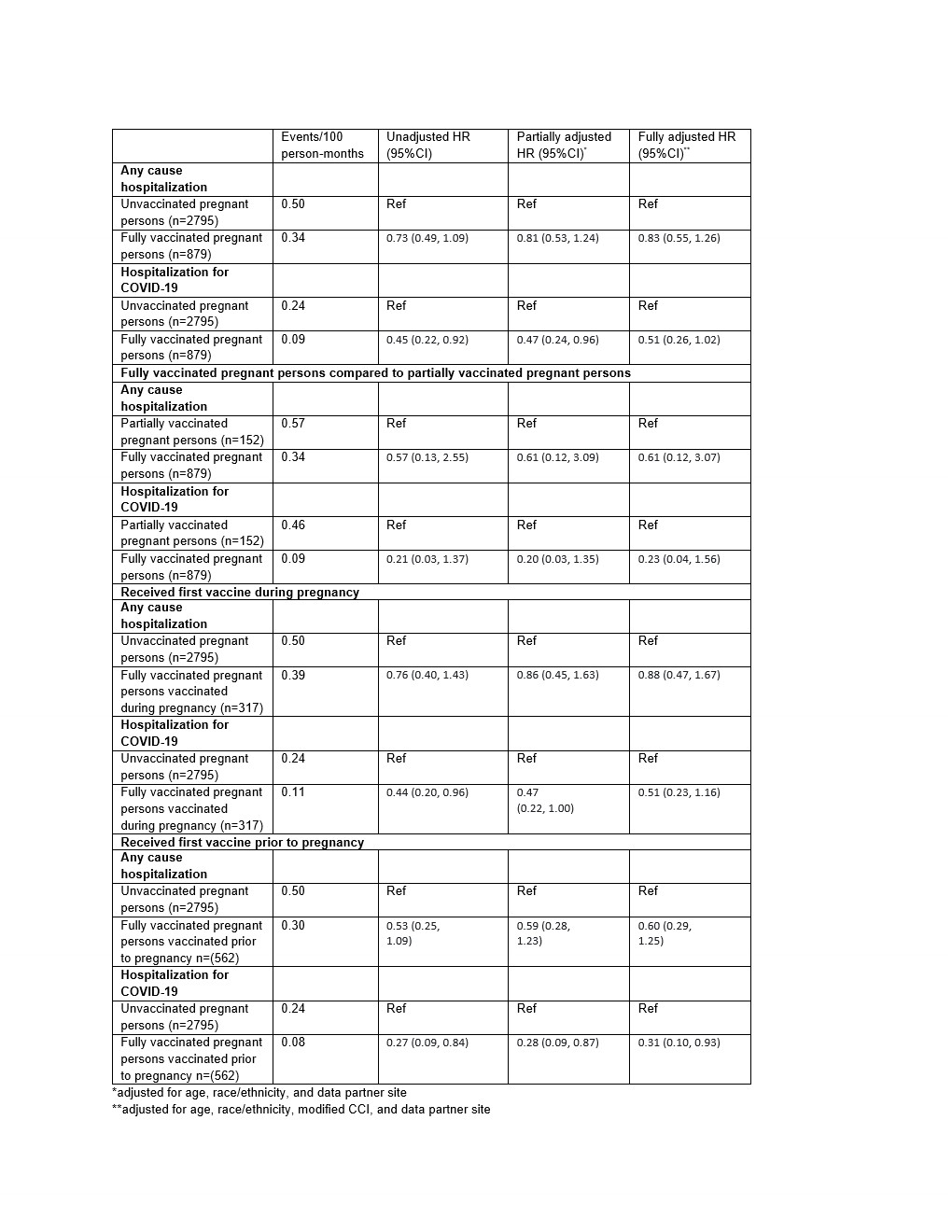Session Information
Session Type: Poster Session C
Session Time: 9:00AM-11:00AM
Background/Purpose:
Acknowledgment: Contributed on behalf of the National COVID Cohort Collaborative (N3C) Consortium
Individuals with rheumatologic diseases (RD) are at higher risk for severe COVID-19 compared to their healthy counterparts. ACR recommendations for COVID-19 vaccination of patients with RD was issued at nearly the same time as CDC recommendations for vaccination during pregnancy, in late July 2021. However, limited data to date exists on vaccination effectiveness among pregnant patients with RD. The aim of this study was to assess the incidence and severity of breakthrough COVID-19 post-vaccination in pregnant patients with RD.
Methods: Using a retrospective cohort analysis of the National Covid Cohort Collaborative (N3C), a nationally sampled and prospectively collected electronic health records repository, we analyzed incident and severe COVID-19 in pregnant patients with RD who were fully vaccinated or additionally vaccinated as defined by CDC recommendations before or during their pregnancy compared to non-vaccinated pregnant persons with RD from December 10, 2020, through May 28, 2022. Pregnant persons were identified using the HIPPS algorithm developed and validated for this purpose for N3C data. Within this group, those with RD were identified using diagnostic codes for the most prevalent RDs, namely SLE, RA, or spondyloarthritis. Incident breakthrough infection was defined as any COVID-19 positivity via laboratory or diagnostic criteria at least 14 days after full vaccination. To evaluate the severity of COVID-19, we identified incidences of hospitalization (all-cause) and hospitalization for COVID-19. We estimated adjusted hazard ratios using Cox proportional hazard models, adjusting for age, race/ethnicity, comorbidities, and data partner site.
Results: Of the 3826 pregnant persons with RD included in our cohort, 466 (12.2%) were vaccinated during and 565 (14.8%) prior to pregnancy, with the remaining 2795 (73.0%) having no reported COVID-19 vaccine. Baseline characteristics of the cohort are shown in Table 1. Compared to unvaccinated pregnant persons, we found an adjusted hazard ratio (aHR) of incident COVID-19 of 1.26 (95%CI: 0.88, 1.78) for fully vaccinated, either before or during pregnancy, pregnant persons (Table 2). Compared to unvaccinated pregnant persons, the risk of severe COVID-19 was lower for fully vaccinated, either before or during pregnancy. The aHR for COVID-19 related hospitalization was 0.31 (95%CI: 0.10, 0.93) when comparing those who were fully vaccinated prior to pregnancy with unvaccinated individuals (Table 3).
Conclusion: While our analysis did not identify a statistically significant protection from COVID-19 initial vaccinations for incident infections among pregnant persons with RD, our data suggests a clear benefit associated with vaccination and prevention of severe COVID-19. While the overall rates of these severe COVID-19 outcomes were rare, the positive signal suggests pregnant persons with RD should continue to be prioritized for booster vaccinations.
To cite this abstract in AMA style:
Sutton A, Hilliard C, Qin Q, Anzalone A, Toth M, Patel R, Singh N. Breakthrough COVID-19 and Severity After Vaccination Among Pregnant Persons with Rheumatic Diseases [abstract]. Arthritis Rheumatol. 2023; 75 (suppl 9). https://acrabstracts.org/abstract/breakthrough-covid-19-and-severity-after-vaccination-among-pregnant-persons-with-rheumatic-diseases/. Accessed .« Back to ACR Convergence 2023
ACR Meeting Abstracts - https://acrabstracts.org/abstract/breakthrough-covid-19-and-severity-after-vaccination-among-pregnant-persons-with-rheumatic-diseases/



